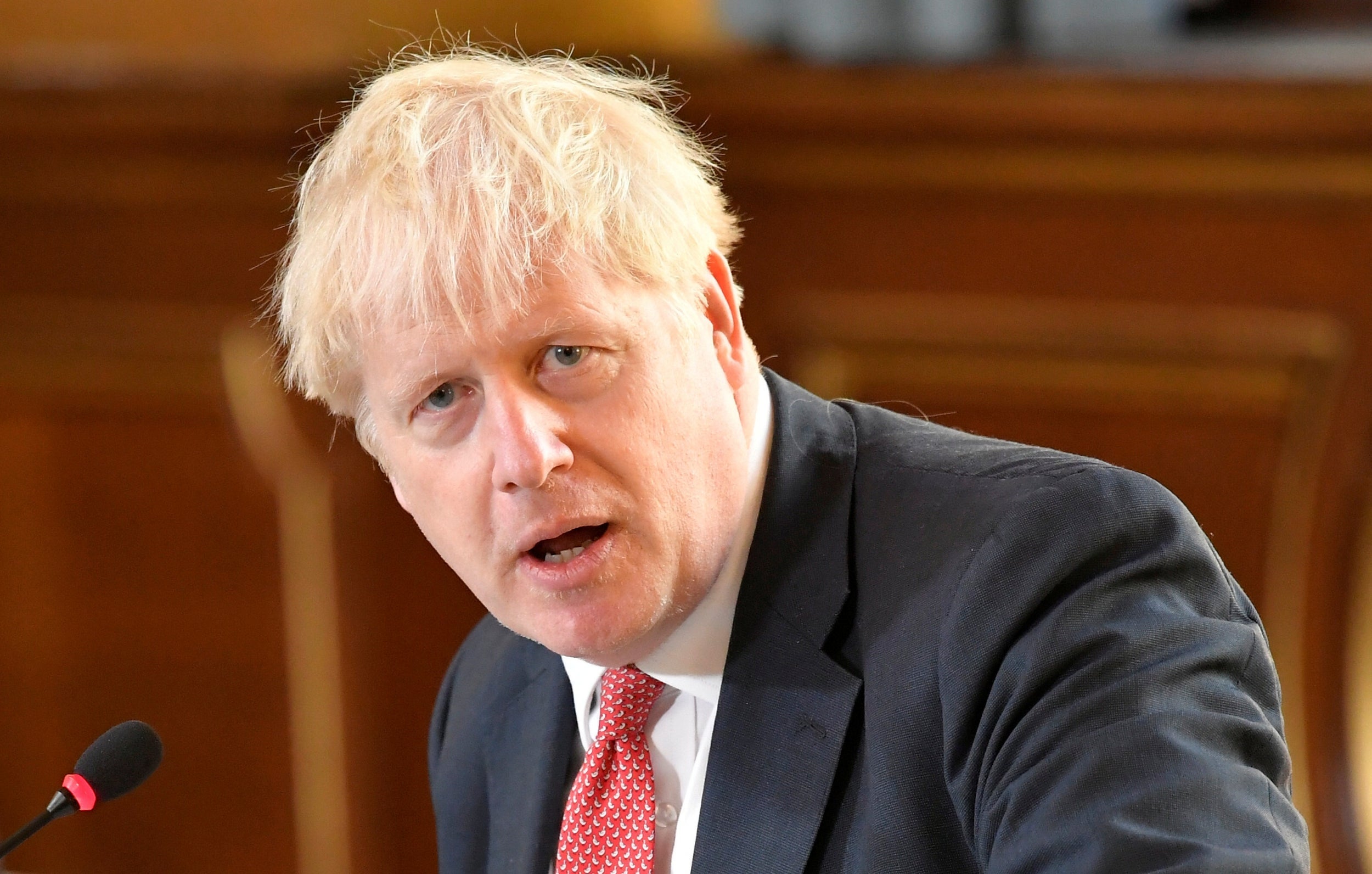Brexit is a saga of endless misunderstandings from both sides of the negotiating table
Editorial: Threats, ultimatums and bluffs are the way wars start, or in this case a cold war between the UK and its former partners in the European Union

Taking an optimistic view, the government’s plan to “override” parts of the UK-EU withdrawal agreement is just a typically audacious Johnsonian negotiating tactic. Frustrated by the European Union’s refusal, fairly or not, to grant Britain a “Canada-style” free trade agreement, the prime minister and his team are upping the ante, doing what the European Commission least expect, calling Michel Barnier’s bluff and so on.
When these British threats succeed (on this hopeful reading), and the EU gives way on fisheries and the “level playing field” and a historic UK-EU free-trade agreement is concluded, all concerned will be so relieved that a no-deal Brexit has been avoided that the prime minister will be regarded as the greatest British statesman since Palmerston.
Before long, any lingering resentments from Brexit, between the British and Europe, and between Remainers and Leavers will dissolve, and Global Britain will indeed “prosper mightily”, as Mr Johnson promises.
That, though, does sound more fanciful than optimistic. Quite apart from the logical impossibilities of reconciling the British and European positions, with or without the withdrawal agreement, there is far too much scope for misunderstandings and miscalculations. Threats, ultimatums and bluffs are the way wars start, or in this case a cold war between the UK and its former partners in the European Union.
Indeed, the past nearly half a decade of Brexit has been an almost uninterrupted saga of misunderstandings and miscalculations on both sides. The Europeans, for example, seem to have underestimated the degree of nativist sentiment in Britain, and how far resentments about immigration (much of it nothing to do with the EU) drove Eurosceptic sentiment.
Taking the likes of David Cameron at his word, they thought the British would, as at the last referendum in 1975, follow their most sensible political leaders, rather than inflict an unprecedented act of economic self-harm. Even before Brexit, the EU was ill-prepared for the rise of populist movements across the continent. They took Nigel Farage simply for a fool, rather than a dangerous fool.
The British too have harboured their own misconceptions. During the Brexit referendum it was asserted, apparently sincerely, that Britain would easily be able to achieve a free trade agreement covering goods and services, plus close cooperation on security and other matters.
“Access” to the single market was assumed. It was said that the German car makers and Italian producers of prosecco would lobby to make sure that frictionless trade would continue. A trade deal was greatly in everyone’s interests, and therefore was bound to happen.
The British badly underestimated the German devotion to the integrity of the single market, and to the principle of free movement of labour. They also assumed, and still do, that if they could only get past the European Commission and deal directly with Angela Merkel, Emmanuel Macron and Leo Varadkar, all would be well.
The misleading precedent was that of the “last minute” deal and the “new” withdrawal agreement negotiated by Boris Johnson last year. In fact that merely reverted to an older EU proposal to implement an economic border down the Irish Sea. It was not, as many thought, some breakthrough as a result of Mr Johnson’s negotiating skill, even though it was misunderstood as such.
Nor did it “get Brexit done” as is now all too apparent. Moreover the “oven ready” deal is so half-baked the prime minister wants to take it out of the oven.
This, then, is not a moment to add further risks and theatrical gestures to an already miasmic mass of misconceptions. With time so short, it is absurd that the British should risk what has been agreed so far – the “divorce settlement” – in some final futile attempt to achieve a trade deal that has always been impossible, for logical and political reasons.
The irony is that the two major obstacles to a trade deal remain negotiable. The British, under a no-deal Brexit, will have far more fish on their plate than they can possibly eat, a sort of parody of the biblical parable of the feeding of the 5,000. Yet nor will the British have anyone to sell their fish, or fish-based products to, as the EU seems set to slap tariffs and quotas on them (also absurdly).
As for state aid and the level playing field, the reality is that EU nations are much keener on state aid, national preference and subsidies than they let on; and the British are less enthusiastic than they sometimes appear (and in any case haven’t got the money). Some sort of broad level playing field framework, agreed willingly and mutually between two sovereign democratic entities, really shouldn’t be so difficult to construct.
At the moment though both sides seem to assume that the other side isn’t interested in a deal, and have to be threatened and bullied into accepting one. That probably won’t work, because neither side will accept being bullied – one of the fundamental mutual misunderstandings.
Neither side, apart from some ultras, want a no-deal Brexit, and chaos at the borders, but it seems inevitable, and unintended. When the economic coroners come to pass judgement on the sad end to the high hopes of the Brexit referendum of 2016, it will be one of death by misadventure.

Join our commenting forum
Join thought-provoking conversations, follow other Independent readers and see their replies
Comments